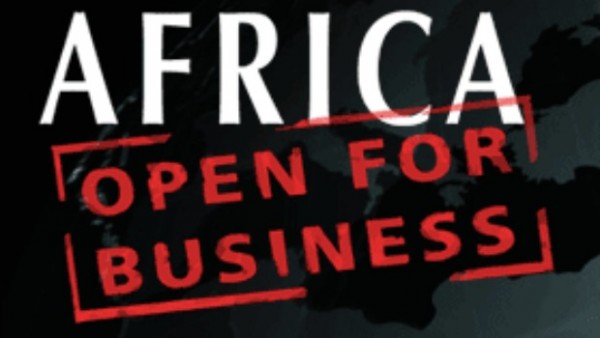South Africa’s Foetal Alcohol Syndrome problem
May 27, 2016Saldanha Bay, South Africa – On a weekday afternoon, the waiting room at Saldanha Clinic is filled mostly with women.
When seven-year-old Michelle Daniels* enters with her mother, a few stare. She has facial features typical of a child with Foetal Alcohol Syndrome (FAS) – small eyes, flattened cheeks, a short nose and a smooth philtrum above a thin upper lip.
It isn't uncommon to see children like Michelle in the area. The Foundation For Alcohol Related Research (FARR) recently concluded a three-year study in the Saldanha Bay Municipality, which includes five small seaside towns on South Africa's scenic West Coast.
It found a Foetal Alcohol Syndrome Disorder (FASD) – the umbrella term used to describe a spectrum of conditions of which FAS is the most extreme – prevalence rate of 6.42 percent (64 per 1,000) among children in Grade 1.
“This is not an insignificant number,” explains Leana Olivier, the CEO of FARR. “The prevalence rate of FASD in South Africa is several times higher than elsewhere in the world.”
Education campaigns have made people more aware of the syndrome, which is linked to alcohol consumption during pregnancy.
One of the women who had stared at Michelle in the clinic murmured to her companion. “We never used to think these children looked different. We just said that's how they were born, that's how they look. Ya, we can see some of them are slow, but that's how God made them. Now we know they're like that because the mothers were drinking.”
Michelle's mother denies that she drank alcohol during her pregnancies. “I have two sons, they're 16 and 12. The oldest is a slow learner, and from what the nurses told us, I think he has the syndrome. But I don't know how. My husband drank when I was pregnant, but not me. This one, she's fine.”
Leana attributes this tendency towards denial to the social stigma sometimes attached to having a child with FASD. “There's still a lot of labelling, a lot of blame placed on mothers,” she says.
Two kilometres away, at a clinic in the neighbourhood of Diazville, nurse Suzy Samuels has personal and professional experience of children with FASD. “We know the mothers are heavy drinkers. We work with these children; you can see they aren't normal, but you can't just tell the mother that. They don't want to believe it, and they'll say they didn't consume alcohol when they were pregnant.”
Sixteen years ago, Suzy became a foster mother to Anna*. “She looked normal. But when she was three or four I saw something wasn't right. She became hyperactive, she'd jump from high cupboards, and wasn't afraid. She wouldn't understand simple instructions. At school, she was bullied. Once, they put a rope around her neck, but she didn't say anything. She just let them lead her around.”
Knowing that Anna's biological mother was an alcoholic helped Suzy to understand the diagnosis. “I knew it was FAS. She doesn't have the features, but her siblings do.”
‘I was heart-sore for my child'
Thirty-four-year-old Priscilla Harris sits under a tree, taking a break from washing clothes by hand for the family she works for. Her mind is in Worcester, 160km away, where her 12-year-old son, who was born with FAS, attends a school for the disabled.
“He's my second child. I didn't drink when I was pregnant with the other two, but with him, I drank a lot, and smoked buttons [Mandrax]. I didn't have any problems I wanted to forget, I was just craving alcohol.”
She considered herself immune, ignoring the antenatal clinic's warnings. “They say everything, but we don't like what they say. I didn't think anything bad could happen.”
“When he was born, I could see there was something wrong. When he was a few years old, he couldn't speak properly. That's when I was heart-sore for my child. That's when I stopped to think about what I'd done.”
Priscilla's mood lifts quickly and she smiles. “I have so much love for that child. He's my favourite,” she says. “I see him as a present from God, so I accept him. God has blessed me. He's so intelligent, and is doing so well at his school.”
Four women pass by, with seven children under the age of nine accompanying them. They stop to chat, eagerly opening up about their lives.
“I drank until I went into labour at seven months with my first child,” says 38-year-old Shireen. “I just needed to forget my problems. I lied to the nurses, saying I wasn't drinking when I was.”
She doesn't know if her son, who is now 14, has FAS. “He was taken in by Welfare. I didn't drink with my other three children – [aged] 11, seven and one – but they're also with Welfare. I can't look after them,” she says.
Nicole is 36 and also a mother of four. She drank during her first pregnancy. “When we were younger, we were just drinking every day. My boyfriend was in jail, my mother was on my case, there was too much stress. But my child was very healthy. Maybe it takes time for it to develop, but she's in high school, and she's fine.”
They all know someone who has a child with FAS.
“Some of them don't want to see it, but they know, they can see in the first months the way the child cries all the time, doesn't pick up weight. You can see in the face they aren't normal,” explains Angelique.
Martha, the oldest at 38, has stood in silence. When she speaks, she does so softly. “Sjoe, we've been lucky,” she says.
A culture of drinking
FARR's Leana says it's socially acceptable to abuse alcohol in South Africa. “In all the studies we've done, when we ask what sensible drinking means, nobody knows. They say we drink until we tip over, and if I don't drink, I'd be the only one in my circle not drinking.”
According to studies by the Medical Research Council, women from lower socioeconomic backgrounds are unlikely to drink alone, unless addicted. They drink with friends, family and their partners.
The women agree that this is the norm.
“We just drink on weekends, where we get together to discuss our problems. The new thing is bobbies, which is home-brewed ginger beer. It's home-made. You just need two bottles and you're dik gesuip [completely drunk],” laughs Angelique.
“Ya, it's very nice, but the next day you have a moerse [hell of a] headache,” groans Shireen.
They want to discuss the role of men in all this. “When his girlfriend or wife was pregnant, he was buying the alcohol, drinking with her,” says Angelique. But when the child is sick, then they're complaining, saying it's her fault,” adds Nicole.
The awareness programmes run by the clinics are trying to change this. “We're teaching the fathers too. They're drinking with their girlfriends but they don't know the dangers,” says nurse Suzy.
Maxwell Krotz, a rehabilitated drug addict turned community worker, is also angry that men take little responsibility. “When we found out my girlfriend was three months pregnant, we celebrated by throwing a party and drinking. I told her it was OK to drink.”
It was his alcoholic grandmother who set them straight, he says. “She said she didn't want a syndrome baby.” He pauses. “My daughter, she's now nine, is the opposite of what I expected. She came first in her class last year. She changed my life.”
Family planning
“In South Africa, about 75 percent of pregnancies are unplanned. Sometimes women just stop taking a contraceptive, they don't think about falling pregnant,” says Leana.
Because these women aren't expecting to have a baby, some drink well into their first or second trimester. “They say they'll stop drinking when they know they're pregnant. But that means 12 to 16 weeks of drinking. Because even though they know they've missed periods, they deny that they're pregnant. Many wait until three or four months to confirm the pregnancy.”
Suzy is frustrated that the family planning programmes run by every clinic are in vain. “We have a lot of teenage mothers, unaware they're pregnant. Others are liars. They've had children before, so they know the symptoms. We teach family planning but they aren't listening.”
But Angelique, Martha, Nicole and Shireen say the family planning sessions do help. They've all had a diaphragm inserted, taking control of their reproductive health. “The men refuse to use a condom. They say if we're living together why use a condom, unless you're sleeping with other men, and are bringing home HIV,” sighs Nicole.
Poverty and unemployment
Saldanha Bay, with an unemployment rate of 23.4 percent, fares better than most other municipalities in the Western Cape. Langebaan, Saldanha, Paternoster and St Helena Bay are all quaint holiday fishing villages in the municipality, providing employment at local guesthouses and hotels. In Saldanha, rail company Transnet and the steel and seafood factories employ most of the town's working population of 35,000.
“In Saldanha, we can't blame high levels of poverty and unemployment for people drinking,” says Leana.
In the local park, blue-collar workers are on their lunch break. Sitting some distance away from the workers are a group of men drinking from brown paper bags, keeping an eye out for the police. Twenty-nine-year-old Jonas has lived in Saldanha for eight years.
“I've never had a permanent job. It's not easy to get one if you aren't educated. Here in Saldanha, most of the guys are seamen, but you need a certificate for that. I don't know how to get it,” he says.
Alcohol is an easy escape. “There're a lot of men like me, struggling. When I'm not drunk, I feel like a failure. When I'm drunk I at least get to sleep and forget.”
His wife is also unemployed, but Jonas says she doesn't drink. “I see pregnant women at the tavern drinking, enjoying themselves, and I ask why? I'm glad my wife doesn't do that.”
For Angelique and her friends, life is hard. They're walking from the Diazville neighbourhood to a weekly food kitchen in Saldanha, happy at the prospect of a good meal. All are unemployed, feeding their children from a monthly social grant of R350 ($25).
“It's not enough. During the month, on that R350, you must loan here, loan there, try to get jobs, washing dishes, washing clothes. Thirty rand, forty rand, you take it,” says Angelique.
She adjusts her two-year-old son, who's strapped to her back with a blanket. “It's very difficult to find a job. Even to pick up papers in the street you must have a Grade 12 [school leaving certificate].”
Only Martha has a husband who offers some financial support. The others have boyfriends who drift in and out of their lives. “The men are lost cases. They just come to you when they want sex,” chuckles Shireen.
A disturbing trend mentioned by numerous locals is the rise in teenage drinking and pregnancies. “Young girls of 12, 13 are pregnant by their sugar daddies. They sleep with older men for money. That's another way to survive. They're selling their bodies for food. Their own mothers are selling them,” explains Angelique.
At the clinic Saldanha, patient Anna Van Wyk is close to tears in the waiting room. “These girls have no bond with their children. On my street, a 16-year-old left her four-year-old child alone at home, while she was out getting high on tik [crystal meth]. I had to call the police, I was so heartbroken for that small child. The alcohol and drugs are killing our community.”
Rising prevalence
But Saldanha is not unique. The socioeconomic conditions here are replicated in community after community across the country, as are the stories.
It has long been believed that FAS is predominantly a result of the “dop” system, where white farmers paid farmworkers liquor as part of their wage.
But Leana disputes this. “The idea that we have a FAS problem only because of the ‘dop' system in rural areas is incorrect. If there was a linear link there should have been a decrease after the dop system was outlawed, but this isn't the case. In all the studies we've done, we've asked participants if they've been exposed to the dop system, and the answer is no. It doesn't explain what's happening in the cities, what's happening in more traditional areas,” she says.
A study in the Northern Cape's capital, Kimberley, found a prevalence rate of 6 percent (60 per 1,000) among Grade 1 learners. In the Eastern Cape's Nelson Mandela Bay, the rate is 13 percent (130 per 1,000) among learners from a mixed socioeconomic urban population.
This gives South Africa's poorest province, with the highest unemployment rate, the unenviable position of having the highest rate of FASD in the world.
But Leana warns that the middle class isn't exempt.
“GPs are still telling mothers it's OK to drink one or two glasses of red wine a day. Sometimes children are incorrectly diagnosed with ADHD, but they have FASD,” she says.
According to FARR, FAS affects at least three million people in South Africa, with more than six million affected by FASD. This means that 20 percent of the population is affected by alcohol exposure during pregnancy.
And yet it isn't considered a national priority.
READ MORE: England's lost children – living with FASD
Solutions and strategies
South Africa has a high burden of infectious and non-communicable diseases, and so FASD doesn't feature high on the government's action list.
“HIV and TB are focus priority areas. There is a general acknowledgement that alcohol abuse is a problem, but very little is being done about FAS,” says Leana.
FARR has implemented its own training initiatives, notably FAStrap and Healthy Mother Healthy Baby (HMHB), which educates women on dangers during pregnancy and provides newborns with free neuro-developmental assessments. Leana says they have a high success rate among mothers who sign up for HMHB. “The women are highly receptive. In Saldanha Bay, all 200 women who joined gave birth to children without FASD.”
FAStrap is a four-day course educating community workers and farm labourers on child health, hygiene and other life skills pertaining to parenting, substance abuse, FASD and responsible sexual decision-making.
Leana says only the Western and Northern Cape governments, two provinces with high prevalence rates, have shown an interest in developing intervention strategies. On a national level, she says awareness among government officials is “appallingly low”.
“The Department of Health says it's a social problem. The Department of Social Development says it's a health problem, and the Department of Education says we're sitting with the problem. What's needed is a multi-sectoral approach at national and provincial level,” Leana says.
Despite the fact that millions may be living with FASD in South Africa, there has been no national study detailing its socioeconomic or psychosocial impact on the country. Leana says it's estimated that FASD costs the United States more than $6bn annually. Studies in the US and Canada reveal that people with FASD are up to 19 times more likely to be incarcerated. The same could be true for South Africa.
Angelique and her friends are adamant that they will not allow their children to grow into teenagers who binge drink and have unprotected sex.
“We want better for them. We weren't taught by our mothers about sex, and about the problems of drinking alcohol,” she says. “But now we know, and we will teach them.”
The post South Africa's Foetal Alcohol Syndrome problem appeared first on African Media Agency.
Source:: http://amediaagency.com/south-africas-foetal-alcohol-syndrome-problem/


















